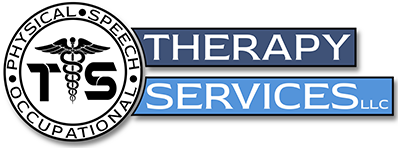Stroke/TBI
Physical therapy plays a crucial role in the rehabilitation of individuals with neurological injuries or conditions. With a combined over 30 years of experience working with patients with neurological impairments, our Physical Therapy team is proud to provide rehabilitative care
Stroke and Traumatic Brain Injury
Stroke and Traumatic Brain Injury (TBI) can have long term consequences and many times people who suffer from one or both need short and long- term care. Therapy Services offers a comprehensive rehab team to help address areas of impairment for individuals who suffered from stroke and/or brain injury. Our team strives to promote recovery through rehab, improving quality of life, and getting you back to your everyday functions.
Rehabilitation
Therapy Services offers a comprehensive Stroke and TBI team dedicated in helping restore movement and function. The team consists of physical therapy, occupational therapy, and speech therapy. Team meetings are held to best address issues and impairments so you can succeed to your fullest. You, your family member(s) and your caregivers are at the center of your stroke recovery team.
Physical therapy plays a crucial role in the rehabilitation of individuals who sustained a Stroke and/or TBI. The primary goal of physical therapy is to help patients regain function, improve mobility, and enhance their overall quality of life. Exercises vary depending on severity, but some include:
- Motor-Skill Exercises: Exercises to enhance muscle strength and coordination used for activities such as balance training and walking.
- Mobility Training: Exercise to improve one’s overall functional mobility. Can be with the help of assistive devices such as walkers, canes, wheelchairs, and different types of braces.
- Constraint-Induced Therapy: The unaffected limb is restrained while the affected limb moves to help improve function.
- Modalities: Multiple modalities used to help turn and facilitate muscles, relax muscles, and for pain modulation. Modalities can include estim at different parameters, ultrasound, heat/ice therapy.
- Manual Therapy: manual techniques needed to improve ROM, function, and pain management. Can be applied for spasticity control as well.
- Neuromuscular Re-education/Balance Training: Balance specific tasks for decrease in fall risk and safety, balance for improved stability.
- Gait Training: Exercises for improved walking ability and navigation of obstacles for safety. Equipment used to assist in walking such as LiteGait for supported walking.
Occupational Therapy plays a large role in the rehabilitation of individuals following a stroke or traumatic brain injury (TBI). Here at Therapy Services, we help patients regain function to improve their quality of life and live that life to their full potential by targeting the affected limb or limbs, vision, brain, and the body as a whole.
Occupational Therapists create individualized treatment plans for patients across the lifespan and at any phase of their recovery to work on getting them back to what they want to do, what they need to do, and what they love to do. Our facility is equipped with specialized tools and treatments to help return patients to the highest level of independence possible.
Occupational Therapy offers the following treatments and more!
- Neurological Re-education
- Range of motion/Strengthening
- Activities of daily living
- Instrumental Activities of daily living
- Electrical stimulation and Functional Electrical stimulation
- Vision Training
- Taping
- Balane/core
- Manual Therapy
- Modalities
- Pain control
- Joint protection
- Saebo training
- Interactive Metronome
- Adaptive Equipment Recommendations/Use
Speech pathologists working with stroke survivors have particular skills in the assessment and management of dysphagia and will be directly involved in the assessment and management of communication disorders associated with stroke, including aphasia, motor speech disorders, and cognitive communication disorders.
Got Questions or Want to Schedule?
Call: ( 304 ) – 599 – 2600
